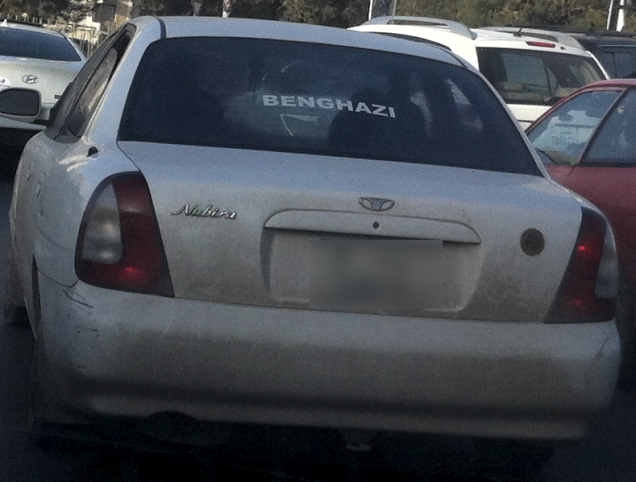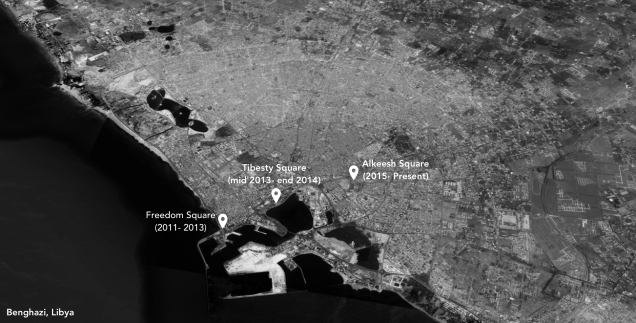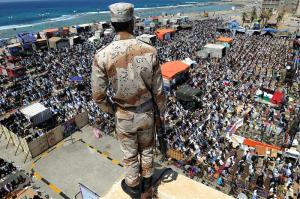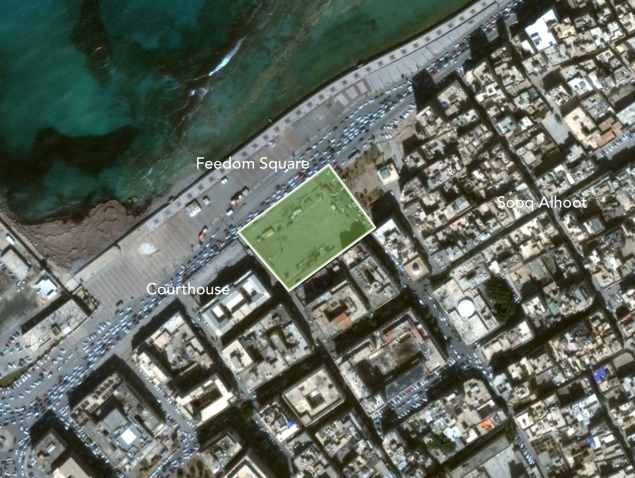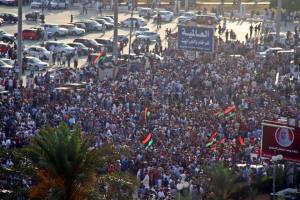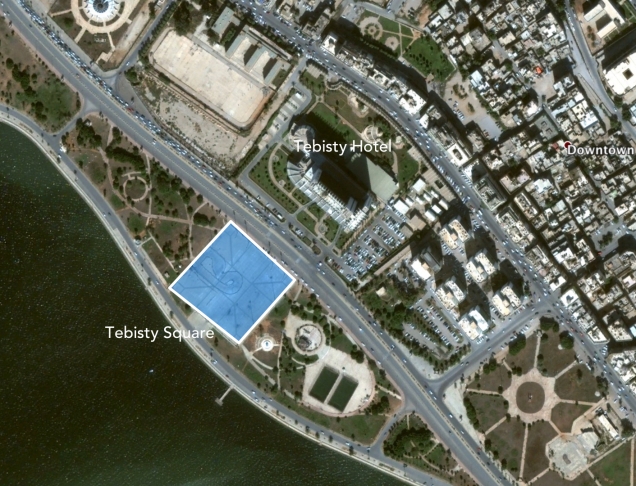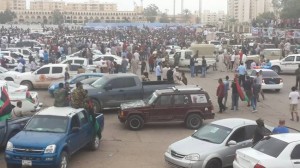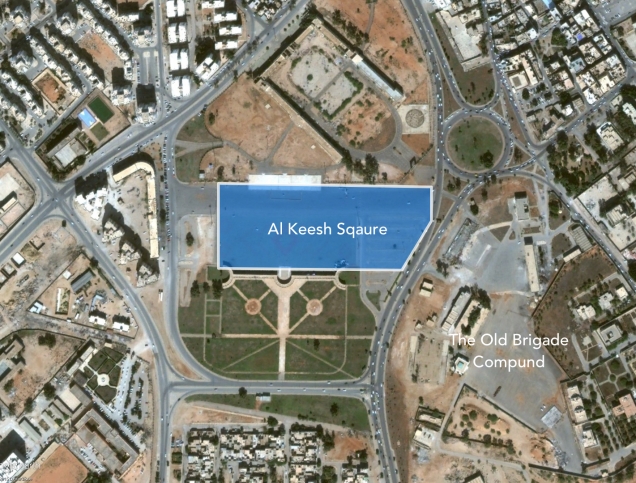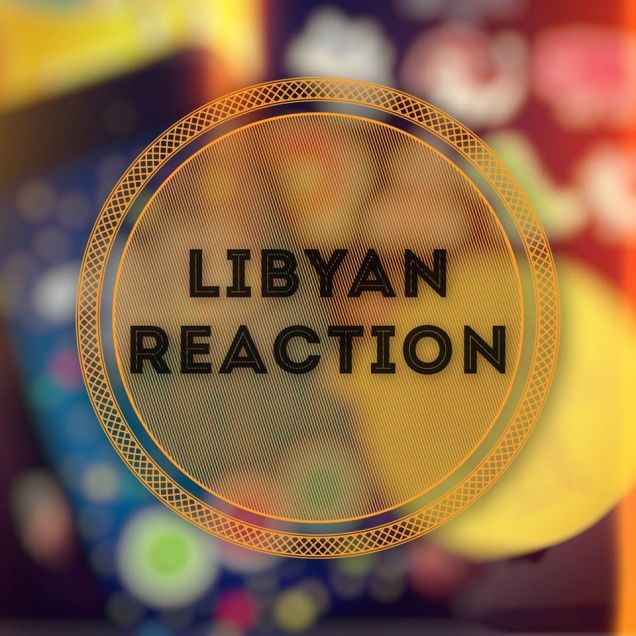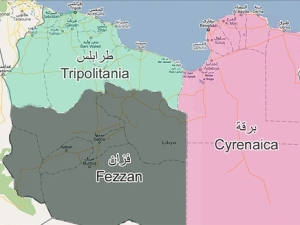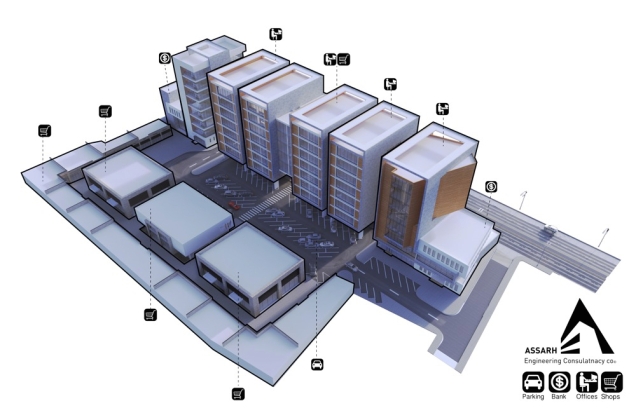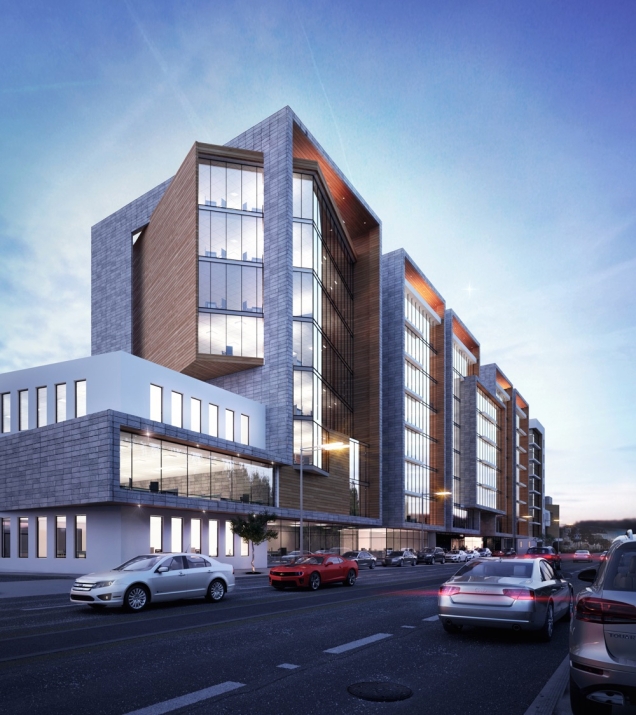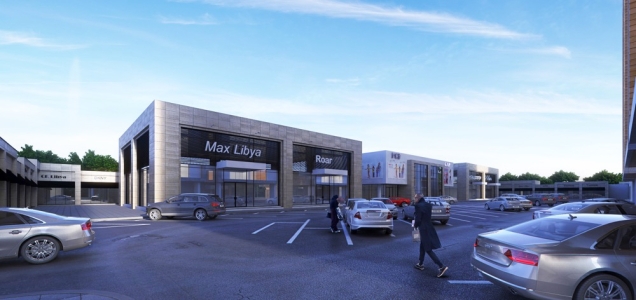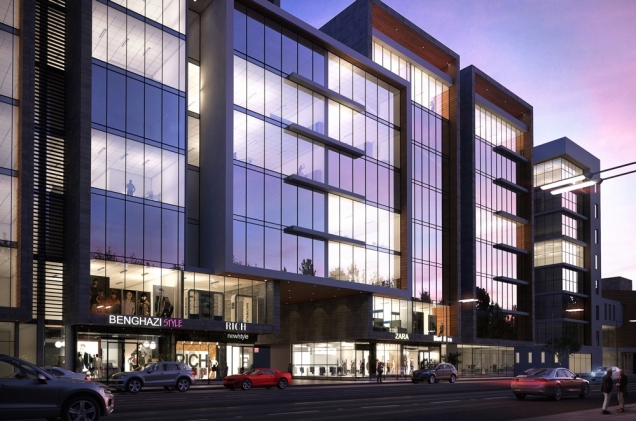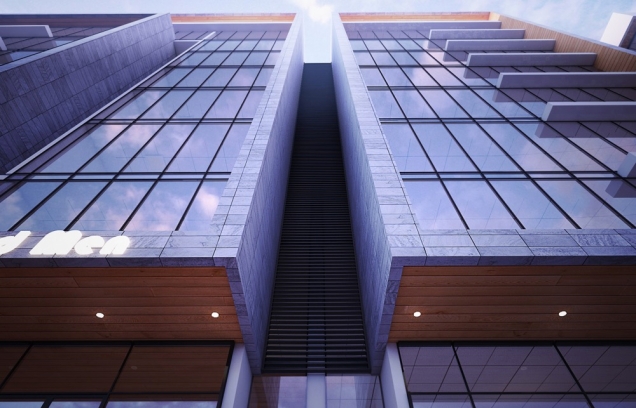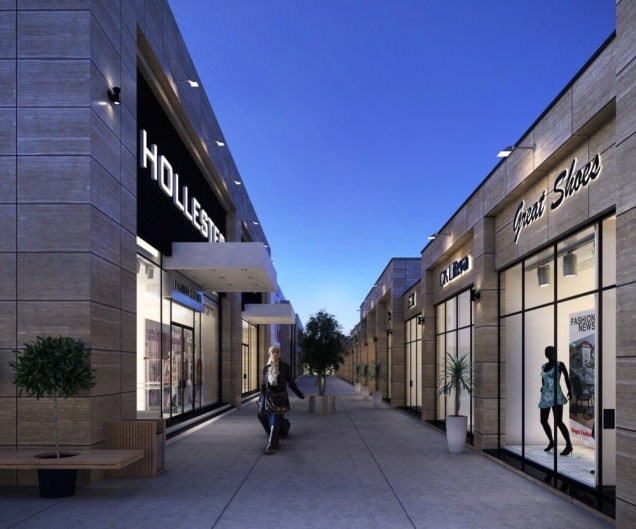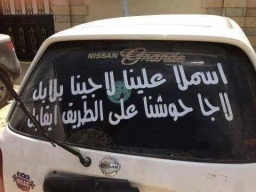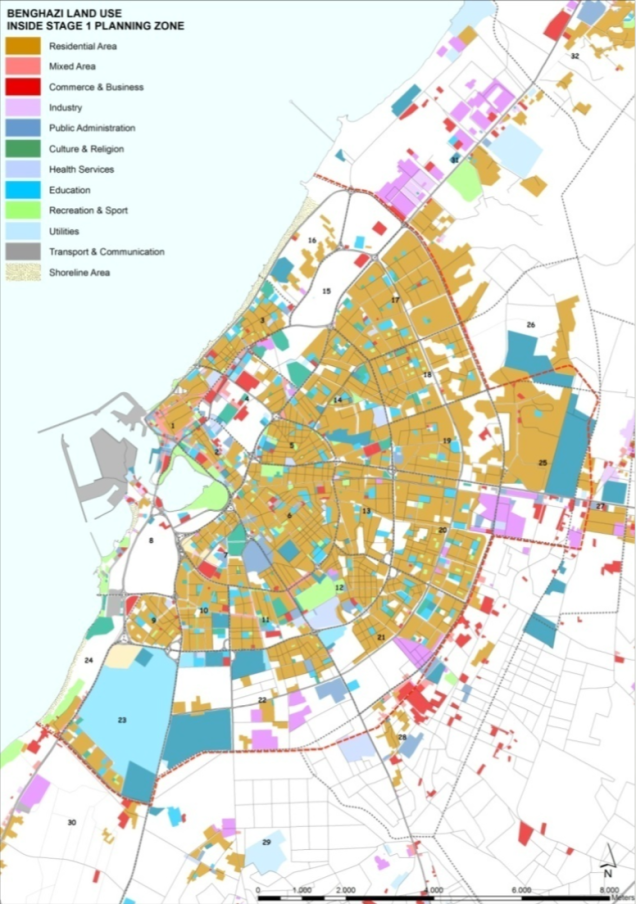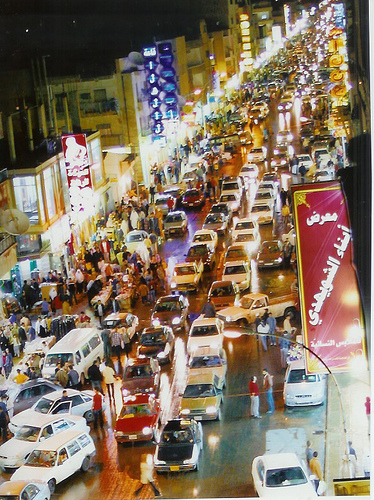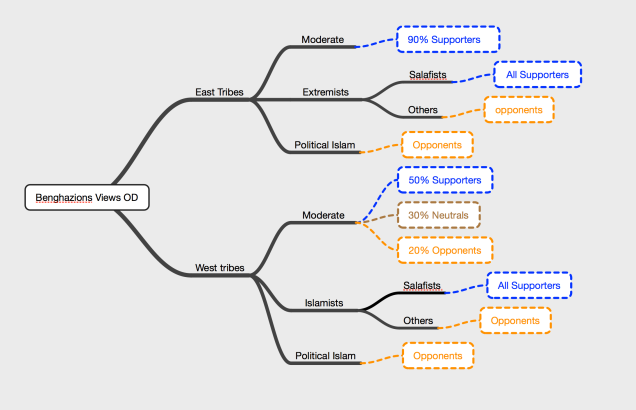I started reading The Almost Nearly Perfect People book by Michael Booth, who talks about his life in Nordic countries and how their daily lifes make them the almost perfect people. It turns out there’s a book talks on Libyans exactly the same Booth’s book. Children of Allah: Between the Sea and Sahara is written by Agnes Newton Keith. Mohammed AlKeilani wrote perfect words discribing this books.
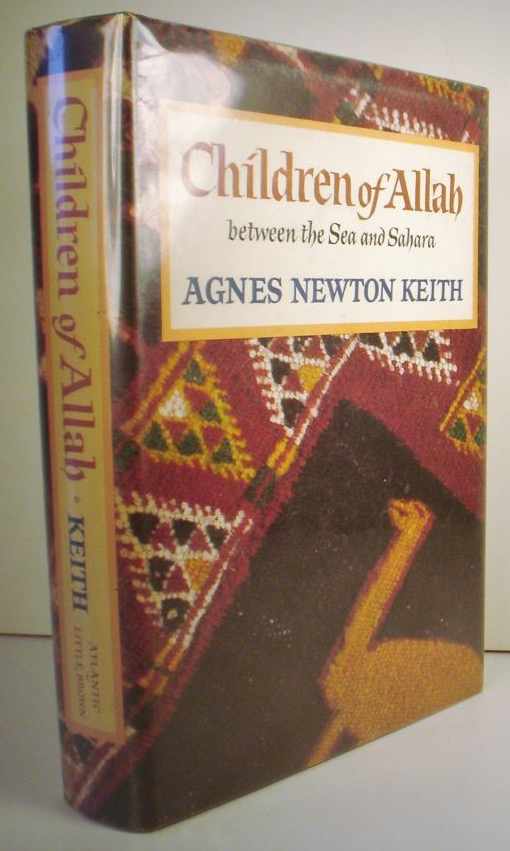
By: Mohammed Khaled Alkeilani
In the name of Allah the most gracious the most mercifulWhom we seek supportAnd peace be upon the honorable of all apostles
Prophet Mohamed, his family and companions
Before anybody accuses me of blasphemy the Arabic word “عيال” does not mean children but actually means dependents.
The Hadeeth says:”All people are (members of) ِAllah’s household, and the dearest to Him are the most beneficial for their own family”.
Everybody now knows that Benghazi is going through some tragedies but we are hoping that this last one would be the last.
If the blood from Benghazi is the ink used in writing the Libyan history, how is the state going to be as we are now about to write the constitution.
I ask Allah almighty for all of us peace and security.
I wish that this article helps in getting us out of the state of sadness, depression and hopelessness even for only few hours.
Starting off I say:
Some writers have a very elegant and captivating style of writing that makes the reader feel like being invited to a shady tent on a clean pristine beach with cool breeze, and listening to tales making him unable to leave the place even after sunset.
Some other writers have such a lumpish and prosaic style that makes the reader feel as a high school student setting in the seventh session of classes on a hot day for a subject that he hates. All what that student would be thinking of at that time is “Oh what a long day when will it just end ”
The author of this book Agnes Newton Keith is of the first type. Her narrative style of using simple language in short sentences resulting in very powerful expressions gets hold of the reader. When she has to stretch a sentence she does it in a smooth way.
The book was published in 1966 (about fifty years ago). The author was an American woman accompanying her husband who worked for FAO (part of UN ). He was assigned the job of an advisor to the government of the newly created Libyan state.
The value of this book is that it documents the period of building the first Libyan state under the leadership of king Idris. In a similar way we are now building the second Libyan state under the leadership of the free Libyan citizen may Allah provide him with guidance.
I first heard of this book many years ago. I searched for it whenever I traveled abroad, but I found out later that it was out of print, and the only copies are available in libraries or held by whoever bought it when it was published. But it is the will of Allah that permitted me to receive a used copy of this book only few weeks ago and due the effort of kind people whom I pray and ask Allah guidance and mercy for them.
The book is subdivided into five parts in 460 pages of the medium size. The first chapter describes the air trip from Rome to Idris airport in Tripoli in September 1955.
The Libyan state then was the youngest UN state with less than four years of age. The population was about a million people of whom only four had a college degree.
The Gibli wind (hot wind from the Sahara)was the first to receive the author at the Tripoli airport and it was her first lesson on desert climate. She spent several weeks searching for a house till she finally settled in Giorgimpopoli the resident of the families of Americans working at the Wheelus air base. ( Mitiga airport currently)
After settling down she started interacting with the local Libyan population without any sort of transcendence. She devotes a chapter in her book for every one around her including the house boy.
She reviews the Libyan history and describes the economic status of that newly independent state which was more like Somalia nowadays.
Her interest in the history of the country led her to visit many of the historical sites such as Ghadames, Leptus Mangna, Cyrene and Ghat.
It is unfortunate that I will not be able in this relatively short article to cover what is in the book about Ghadames, Ghat, Al Kufra and even Tripoli that had no particular chapter devoted to it because that is where most events took place.
Other cities were briefly covered like horse racing in Zawia.
She also gave some important details about places she passed by in her travel like Uweinat and Washka.
Derna was mentioned within the historical account of the hostility with the USA.
Susa and its historical sites as well as Cyrene (Shahat) had been covered well.
Tobruk is covered in relation to king Idris where he had his residence in the Dar Alsalam palace.
Misurata is mentioned only as a passing point in her travel.
What strikes me about the book is that it conveys the author’s close feelings toward the country, its people and even its animals as if she is part of this place.
During her return trip from the Green Mountain to Tripoli she describes the area after Adjedabia as wholesale death region but at the end of that paragraph she says “Perhaps there would be rain this year In sha’ Allah In sha’ Allah.
The book got hold of me so much and I just wish I could translate most of it.
The author excelled in covering many events that we the Libyans have almost forgotten in our daily struggle.
There are certain aspects of the book that I particularly like:
- How she described her trip to Ghadames with details of the old houses, the roof tops that were restricted to women and children.
- How she described in detail the Libyan independence day parade in Benghazi.
- How she lived the January 1964 riots, giving a view account of someone who knew how that government worked, describing what happened between the prime minister Fkini and king Idris.
- How she described the El Marj earthquake from the viewpoint of a local family that she previously visited.
- How she described spending El Eid in Tripoli and then in Benghazi.
- How she described in detail the wedding party she attended.
- How she documented the daily living of Libyans including the habit of mixing roasted peanuts with tea.
- How she felt so united with the locals to the point of nursing their wounds.
- How she mixed the coverage of her daily events with political discussions about the king and the queen Fatima and about the assassination of Shalhi and talked about Buquwaytin.
All of this in a captivating style using simple words without making the reader feeling any flatter or exaggeration.
She describes things in such a way that the reader feels them being metalized in front of his eyes.
She describes sounds in such a way that the reader feels that he hears them in the back of his head.
She describes people in such a way the reader feels he would know these people if he was to meet them.
Agnes Newton Keith was not only a writer but she was an artist as well. She drew some very expressive sketches enhancing the topic she covered.

Her sketches of the Libyans were not rigid or sarcastic, they were living graphics either smiling or expressing emotions.

One can deduce some facts about life in Libya at that time as the case when her Jeep got stuck in the sand.
She started negotiating with some kids to dig it out. When they asked for money she said that “she had two five-pound notes (about thirty dollars) in small purse in her pocketbook”.
What this says is that the Libyan pound was equal to 3 dollars.
As I tried to uncover the religious aspects of her character, particularly in relation to Islam, I found that she mentioned the “Koran” few times.
All was related to forbidden foods like meat. During her travel she gives details of preparing separate meals for Muslims accompanying her.
Another mention of the “Koran” was when a friend of theirs talked about his father marrying another woman and how the “Koran” allows that.
Other than these occasions I could not find any sign of abuse or insult to the “Koran” or Islam.
Even though she showed interest in the ruins of churches and temples she never revealed her personal believes.
From time to time she talks about the political situation of Libya at that time (the sixties of the last century).
The constitution of Libya specifies the existence of two capitals Tripoli in Tripolitania and Benghazi in Cyrenaica.
The government should accordingly move between the two cities followed by the experts who should advise it.
Both the king and the constitution were determined that the government should move. It might be possible to change the constitution she says, but never the king’s will.
The Cyrenaica Defense Force was mentioned in several occasions as this is the force responsible for protecting the king. It is also responsible for the protection of Benghazi.
And it is this force that ignited the riots of 1964.
The Cyrenaica Defense Force however was portrayed differently during the festival of the Independence day of December 24 in Benghazi when this force was the prize of the parade. Mounted on top the camels the soldiers were visibly impressive as the camels stand tall and move quitly compared to the horses and cars.
“The solemn camels with their high mounted riders and their unhurried pace seem to move in a desert vision.”
“Walahi! I say excitedly That’s one thing we will never see in a parade at home!
Thanks be to Allah that we got here before the camels were mechanized ”
While describing that parade she wrote a sentence that deserves a pause. Watching that parade she looked closely at the faces of the soldiers then wrote:
“Well I never saw so many different shades of skin in all my life”
“There is everything from white to tan to brown to black And some with blue eyes too, Berber I guess”
What this means dear Libyans, besides being a clever remark is that we are a multi ethnic society as proved by the different shades of color of our skins. In spite of this we have been living together peacefully except for what is going on among us these days.
I must point out that the author has traveled extensively and has lived alongside her husband in many countries.
She was not like some women of neighboring countries that during their lifetime they never leave the suburb of the city they born in.
Last month I read an article in an American magazine about ethnic diversity in all countries of the world. With the article was a map of world in which maps of countries were colored according to their ethnic diversity.
What surprised me was that Libya ranked among the highest and it scored the highest among all Arab countries.
At first I thought maybe there is a mistake and whoever wrote that is isolated from reality, but upon reading the full article and knowing that the research was done by the Harvard institute for economic research I realized the striking fact.
We are really a multi ethnic society but we have been living together and intermixing peacefully.
This is a grace from Allah, and I hope that we will never reach the point of realizing it only after losing it.
As I am keen not to disperse the topic, I can not publish that map with all the details now.
Some readers may be thinking of the different sectors in some Arab countries like Lebanon, but that is different as all people of these sectors could belong to just one ethnic group.
While the opposite is true in Libya all ethnic groups adopt Islam and one particular school in most places.
There is a famous parable that says “Good Health is a crown on the healthy man’s head seen only by the sick”
In the same way I say that peaceful coexistence in a multi ethnic society is a crown worn by peaceful nations which can be seen only by torn nations or by people of very clear vision like the author of this book.
She covers Benghazi in two contrasting ways.
In the first she says that Benghazi was never much more than a Bedawi village under deemed by lengthy Italian occupation and partially destroyed by WWII bombing, with no trees.
The move to Benghazi was unpopular with everybody, Libyans and strangers. One reason for that was the lack of housing in Benghazi and almost “there is nothing in Benghazi”.
She thinks of her house as foreigners were living in the American ghetto of Giorgimpopoli out-of-town with running water sanitation and garden space and friends to talk to.
Every body was hoping that the government of Abd al-Majid Kubar would fail and Ben Halim returns to power. There was a rumor that a third capital city was to be built in El Beida in the Green Mountain financed by foreign aid money.
“The government in Tripoli existed in organized disorder but in Benghazi in disorganized disorder. If anyone asks for a file he would be given three glasses of tea and a kind word. If he asked for a minister he was told to go to Tripoli, if he went to Tripoli he found the minister in Italy for his health”.
She describes how for three months they were negotiating in Tripoli for a house for rent in Benghazi. By the time they agree to pay the rental fee someone would pay higher and rent the house.
The house they finally got was in an area clean from all trees by goats and later was used as a garbage dump in the Fuihat suburban district.
“Out in our graceless, gardenless suburb of Gardens City it only matters that we have a house, when it seemed for a while that we would have to put up a tent! Although history claims that trees grew here in Roman times, trees and Romans have long since gone, leaving as sole survivors of the arid land, goats, sheep, and Bedawi. The three have combined to destroy, consume, and burn every branch, twig and leaf of possible vegetation”.
“Camels with heavy, creaking loads pass hourly, carefully cushioning their steps with the sway of their torsos placing their great padded feet with faultless rhythm on both sand and rock. Disregarding the road, they pass just outside our gate, their haughty heads undulating smoothly above the wall. their utilitarian, inelegant desert adapted bodies and their disregard for the discomfort of the terrain well merit their supercilious expressions”.
“Meanwhile sheep in all numbers wander about, and if our gate and door stood open they would be in our kitchen; less gentlemanly goats actually assault the gate with evident intention of gnawing their way inside”.
(Warning — If you’re a fan of Benghazi and have a sensitive heart and you are living abroad then please do not continue to read this topic on your own – – else you bear the consequences )
This reminds me of how when we, as young children used to watch the herd of sheep and goats pass by our street every morning when the shepherd collects them from the houses of residents and return them back at sunset
The residents of Benghazi used to keep one or two sheep or goats inside the house.
Our joy is not only in seeing the herd but another source of our pleasure was the different sounds that accompany the herd from the sounds of male goat to the small lambs and the ringing of small bells tied the necks of goats. The shepherd is also doing his part by whistling and shouting at the stray animals whose march on the road provides the Rhythm. And it occurs in three stages, the coming stage when the lambs lead the way, the surrounding stage when we had the chance to touch the young lambs and little goats, and the farewell stage when all the sounds fade away. All of this is mixed with the distinctive smell of sheep and goats.
One of the happy moments for us as kids, was to see the shepherd carrying a small newly born lamb or goat that could not walk a long distance so he carries that young animal between his arms or in his sack while the mother walks very close to him watching her newly born.
We used to get excited seeing some young goats eat the vegetables from the shop on the side of the street. The shop keeper used to get so mad shouting at the black skinned shepherd who feels so embarrassed that the color of his skin changes.
Coming back to our book where we have covered her first viewpoint of Benghazi next we’ll see her contrasting opinion.
In the chapter “The Dump Develops” Agnes Newton Keith gave a totally different account of Benghazi.
“We had called it a dump and hated to come, but our year in Benghazi proved to be one of the happiest of our lives. Here on the edge of the Libyan Sahara we lived a small, cozy life in the little Bedawi tribal village, which dabbled its Arabic feet in Mare Nostrum while its backside was smitten by saffron winds. The shift of capital turned out to be a first-class real estate promotion deal and tides of foreign prosperity poured in on the sandy, red air.”
The fact was that the place grew on you. Its dilapidation, its fierceness, its sadness, its guts, its tattooed Bedawi dames with their high, orange-calf boots and gaudy striped baracans, its tattered, untamed, gentle-spoken men, its enclosed secretive suk, its incandescent salt plains shimmering in the sun, its closer contact with friends and its increased simplicity in living, all took hold of your heart as no big city could.
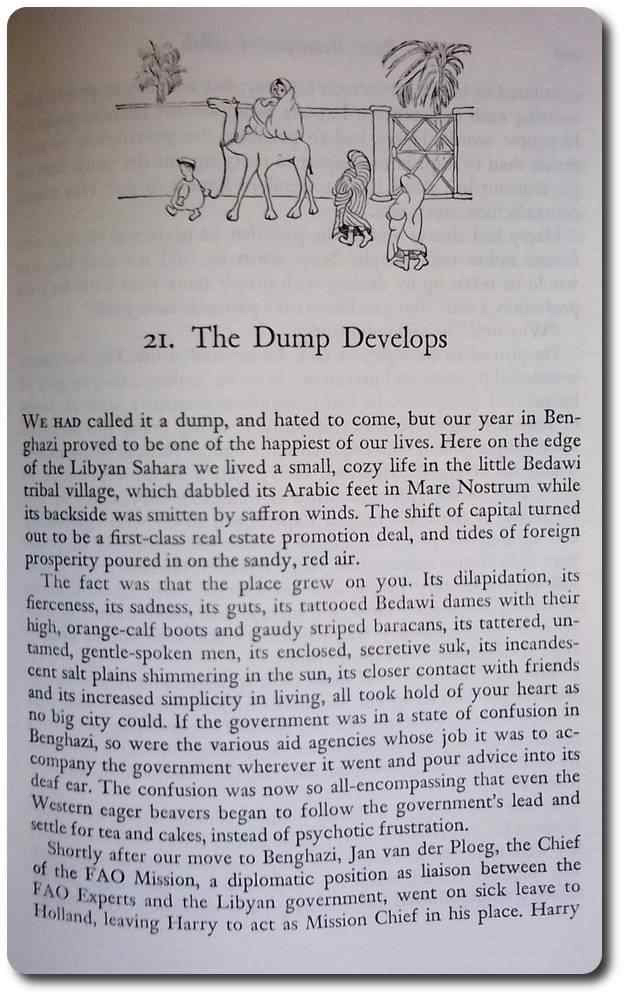
Oh my god ! ! !
At this point I would like to stop reading and translating the book as I will address a very interesting thing that stirred mixed feelings inside me, it is the magic or the mysterious love of Benghazi. The secret that makes Benghazi beloved by anybody who resides within the city, as if she is a magnet pulling gently anybody approaching.
— Anybody who has not been exposed to the whiffs of Benghazi should excuse my next talk —
But if you have been stung by her passion then welcome to a “hazra” party where we will loosen up and get high on the love of the lover’s beloved.
(Hazra is a Sufi gathering where people through chanting transcend into a higher state of consciousness)
What is the secret of her love:
Is her love from her air ? in Arabic “Hawaha min hawaha”
Is her love from her fragrant ? in Arabic “Aishgoha min abigaha”
Is her love from the generosity of her generous people ? in Arabic “Gharamoha min karmi kiramiha”
Is her goodness from her soil ? in Arabic “Teibatoha min torbatiha”
Is her love from her grains ? in Arabic “Hoboha min habiha”
Is her heritage is from her soil ? in Arabic “Torathoha min torabiha”
Is she like a kind mother whose tenderness is from her milk ? in Arabic “Leenoha min labaniha”
Is her inspiration is from her water ? in Arabic “Ilhamoha min Miahiha”.
People come to her by their will but stay by her will
Her kindliness when leaving her turns into yearning
Notes:
1-Using the pronoun “her” may not be grammatically correct but her status does not permit me to use the pronoun “its”. In English pets get the he or she pronouns.
2- I included the Arabic sound so the English reader would get the rhyme of the expression.
In an article published in 2004 about climate change I described this relation to the city:
“The first thing noticed by a visitor to the city is the serenity, tranquility, its mild weather.
As he starts interacting with the people he will feel the kindliness that will turn into yearning upon leaving the city.”
In the 60’s and 70’s of the last century the residents of the city of Benghazi used to drink from the public water supply coming from the wells surrounding the city which had high salinity. This is one property of this city that all residents of Tripoli know well.
When asked if they were willing to travel to Benghazi, Tripoli residents would say “No; the water is salty”. This is true Compared to the water in Tripoli which used to be fresh.
The established residents of Benghazi used to drink from small reservoirs dug underground in their houses to collect rain water from the roof of the house.
Or some of them collect the rain water in large jars.
People who have such facilities do not talk about them in public as the water was not abundant, but they do not turn down any body asking for fresh rain water.
After the discovery of oil the wealthy started drinking “Bin Ghisheer” bottled water imported from Tripoli, in later years they started drinking the “Kufra” water which was bottled aquifer water imported from the Kufra region in the desert south of Benghazi.
Most people still drink this bottled Kufra water but some do drink from the tab which comes from the “Man made River” (also coming from the south through huge pipeline).
In this period ( the 60’s & 70’s ) the residents of Benghazi along with the rest of Libyans started traveling abroad either as students or working in the Libyan embassies.
When feeling homesick some Benghazi scholars would say “The salt has pulled us” referring to the salt in the water that they used to drink.
As in all big cities some slang expressions become popular from time to another.
There is one description for the city of Benghazi as “rearing the homeless”, which I really do not like with due respect to all who repeat it without really understanding the full meaning of such an expression.
I think that it was true for a limited period of time regarding some refugees who came from the western part of Libya during some harsh and difficult years with drought and hunger well spread. Now that should have been the end of it.
Applying this expression to all its residents and visitors implies an insult.
And it does not reflect this emotional bond between the city and her lovers.
The current residents are the offspring of the first generation of immigrants to the city who were not allhomeless.
They all came to Benghazi by their own will but settled in by her will, and the two wills are under the will of Allah.
This American writer said the place “grew on you”. These words were written in 1966( publishing date ), or few years before that ( Actual writing ) when the city was in ruins.
This educated and kind lady was not homeless and she needed no rearing from the city. She did not come to earn a living, nor to learn new technologies, or religious lessons from the city.She had no motive to be a hypocrite by saying this to please us. She wrote her book in her native language for her people about her travel.
Now if anybody feels offended by what I have written with regard to the expression “rearing the homeless”, I would like them to know that I have presented them with very nice alternate slogans.
With these slogans we may have opened a new page in what I am pleased to call the Benghazi literature.
This new page will not be restricted to this article of mine but this beloved city has among her lovers many gifted poets who can write glamorous poems starting with these slogans.
Some of you readers may want to try themselves, so give it a shot.
Some internet thieves may like these slogans and want to adopt them to their cities or villages.
But these slogans are like Cinderella’s shoes. They can only be worn by this pretty princess.
And the shoe maker who made them is driven crazy by her love.
He has been nourished by her love and grains.( in Arabic “Hoboha wa habiha” ).
He has been stung by her passion and breathed her air. ( in Arabic “Iktawa bihawaha kama tanafasa hawaha” )
His wounds were mixed by her wounds as if the umbilical cord between them was never cut.
I will remind you of what this American lady has said living in the city when it was a waste and its inhabitants were poor and hungry and there is almost nothing in the city.
She loved the place in such a way that makes her say that the year they spent in Benghazi is one of the happiest in their lives and not just the years spent in Libya.
And that all what is in the city “took hold of your heart as no big city could”
Now that’s a remarkable statement.
So what is the secret of this place? And what is this “magnet” ?
The other strange thing about this city is that in here you can find people whose last names indicate the city they came from like: Trabolsi from Tripoli, Misrati from Misurata, Tarhooni from Tarhoona, Awjili from Awjila and so on,
And you will find these names in other Libyan cities as well.
But you will never hear Benghazi or Benaghzi from Benghazi .. why is that?
There is no alternative word to express the origin of Benghazi as in the case of Bani Waleed you won’t expect to hear “Bani Waleedi”, but you will hear the alternate word Werfali.
The same case for Jalo, there is no “Jaloi”word like Awjili from Awjila, but there is the word Majbiri.
So why there is no surname Benghazian in our country ? Excluding of course some Facebook page titles.
This cannot be explained by the difficulty in pronouncing the word as you may hear in Trpoli for example: “some Benaghza live in this villa” meaning some people from Benghazi.
To be fair this does not mean that there had been no migration from the city. After the discovery of oil in Libya there was a boom so some merchants from Benghazi moved to Tripoli. And in the last few years a lot of computer engineers from this city could not find work so they moved to Tripoli because of this horrible centralization policy that concentrated most oil companies, public institutes and foreign companies in Tripoli.
I personally have never heard any last name or surname of “Benghazian”, so what is the reason?
Is it that this is no ethnic race by this name as the city is really a mixture of all races of the country?
Or is it that the city imports but does not export ?
That is this city is like a magnet pulling whoever come inside not allowing them to escape?
So you fans and lovers…
Didn’t I tell you that we will “loosen up and get high” in a “hazra” party?
And you emotionally sensitive folks, didn’t I warn you?
Very well then.
Let’s just dry up what has fallen from their summit onto the cheeks.
To our Libyan brothers who cannot understand this relation to the city and these fizzy emotions I say:
Our love for Benghazi is part of our love of Libya.
But there is something that we do not understand and don’t expect you to understand it either.
How the part is sometimes becomes bigger than the whole that is supposed to contain it ! ! !
We will come back now to our first topic about this author Agnes Newton Keith.
There are two things that bother or hurt me.
The first is that there is no mention of this book or the author in our literature or writings, and there is no street named after her name.
The situation is even beyond our culture. Her honest and loving opinion of this Islamic society showing its bright side in the hardest of all conditions did not seem to please the anti islamists to the point that in many websites listing the works of Agnes Newton Keith there is no mention of this book.
The second thing that hurts me more is that this writer has died in the year 1982 at an age of 80 years, her husband has also died in the same year.
So I have missed an opportunity to write to her expressing my gratitude for what she has done and written, describing for her the state of this country that she loved. I am sure that she would have been eager to hear, and she may not believe the state of the country now.
This lady was not a Moslem, but in her book she had been using expressions that we Moslems normally use like Walahi – In sha’Allah – Bismi-llahi.
The one she liked most was El hamdu li’llah (Thanks to Allah).
She used it to express her own feelings whenever she encountered something she liked.
So I pray and ask Allah to reward her richly for what she has written and done.
Finally I would like to ask readers for an advice regarding a matter that was difficult for me to solve.
I have made a photocopy of this book, so I can keep this copy for myself.
and I would like to give away the book as a gift for the benefit of all Libyans, but whom shall I give it to?
To the National Libyan Library?
To the library of the university?
To some computer center for scanning the book turning it to an eBook that can be easily distributed, and what about copyrights?
To a translation bureau to translate it into Arabic, and once again what about copyrights?
To one of the book stores to photocopy it, and once again what about copyrights?
To a distinguished writer?
I am asking for an advice, so please advise me.
This article should have been the first of thirty articles in a series called “Banquet for fasters” that I used to write during the month of Ramadan on a daily basis.
After what has happened in Benghazi of killings and explosions I expected many writers to comment on the event in such a way that makes the reader sick of reading in the same way that he got sick of television and all the analysts and their shows.
So I decided to publish this article early, as this is the will of Allah to make this article an introduction to the series. Many Libyans have never heard of this series of articles nor the author, because I used to write on the first and most popular board “Alsaha Alarabyia” in addition to http://www.I3jaz.com.ly website.
That series was directed towards the Arab homeland, but this year it will be dressed in a Libya dress.
I have started writing these articles in 2007, but stopped in the years 2011 and 2012 because of what Libya was going through.
The “Banquet” this year will go through a unique development, as it will be written in Arabic and English just like this article, besides the diversity of the topics.
The reason for writing in English is that this “banquet” will not be restricted to the boundaries of Arab countries, because the internet is now available worldwide. And there are many Arab and Muslim communities in all parts of the world, so no longer are there boundaries for thought or communications.
The second generation of immigrants do not speak Arabic well, or they understand English better because it is the first international language.
These communities have friends who inquire about the Arab culture and our way of living, so these articles can lead to more socializing as they give a firsthand account of our lives.
As you may know most translation activities here move in most cases in one direction from foreign languages into Arabic, we never ask ourselves what literature works have we giving back to the rest of the world?
All previous excuses for not translating our works are no longer valid with the spread on the internet and the role that search engines play in spreading ideas. One can barely finish writing an article to discover that search engines have picked it up and classified it.
Translation depends on understanding the “spirit or the soul of the subject”, and the translator is sometimes required to clarify some aspects of an idea, but when the writer is translating his own work as he writes it, that adds more clarity and would really convey whatever ideas the writer intends to express.
The writer may benefit from this in improving his work, as language is a tool for thinking as well as for expressing ideas. Computer translation can not suffice especially between languages of different origins.
Writing in English is not a new experience for me as I have previously written some articles regarding miracles in the Quraan in both Arabic and English languages, but writing about general topics that deal with our daily lives using some colloquial language requires some special handling.
I hope that I have succeeded in the selection of content, for the style of writing, for the timing, and for the websites to allow you the reader to receive my message.
If this article pleased you, then you can expect more of the same during Ramadan every day In Shaa Allah. The cook who prepared this meal for you is now “between his pots and his lines” (in Arabic: baina godoorihi wa sotoorihi)
Peace, mercy and blessings upon you from Allah
Mohamed Khaled Alkeilani is an electronics engineer and a private researcher. He is also a graduate of the university of California Davis, currently residing in Benghazi Libya. You can read the orginal article from here http://www.alkeilani.com/n-coa.html
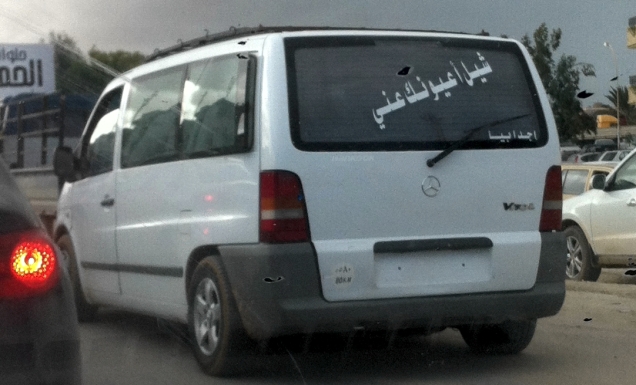
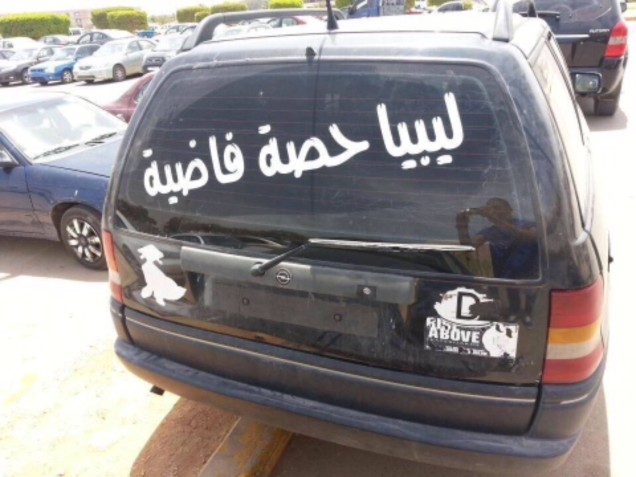
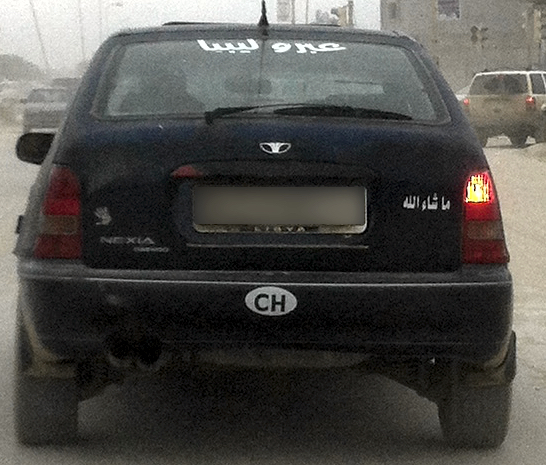
![Al Ahli [a football team] is the best](https://wakeupbenghazi.files.wordpress.com/2015/10/img_3103.jpg?w=636&h=621)
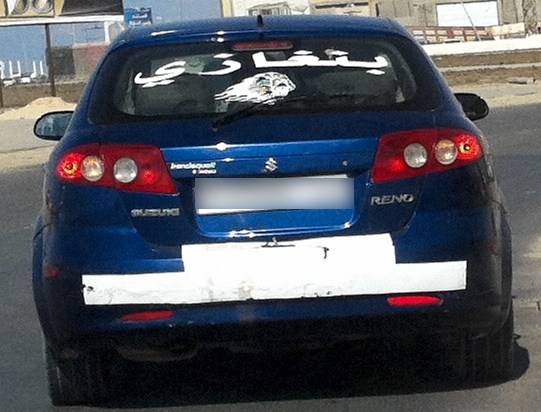
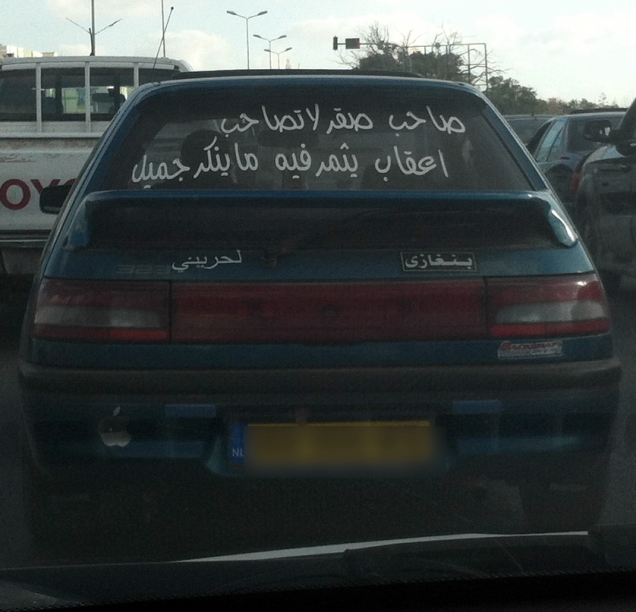
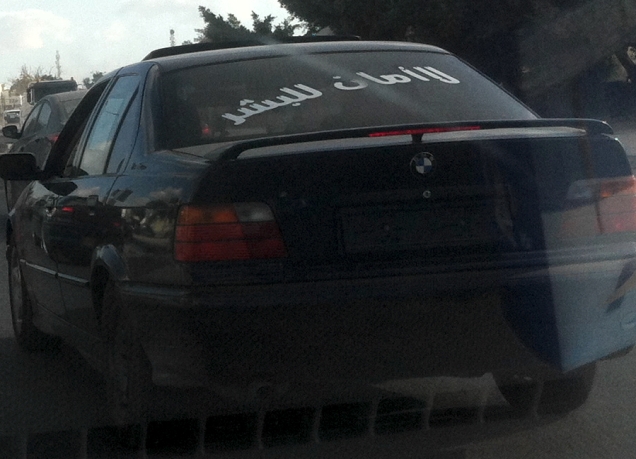
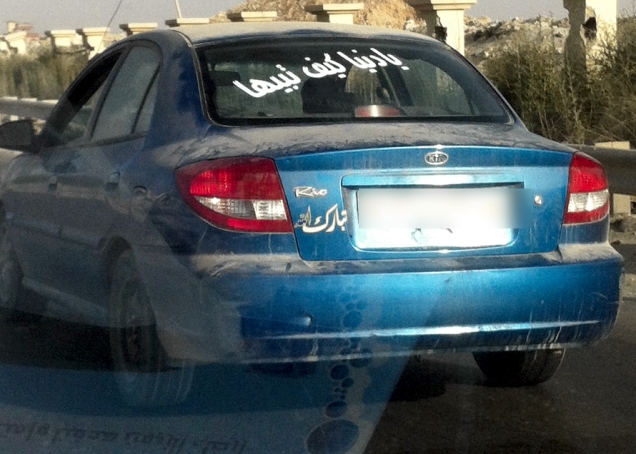
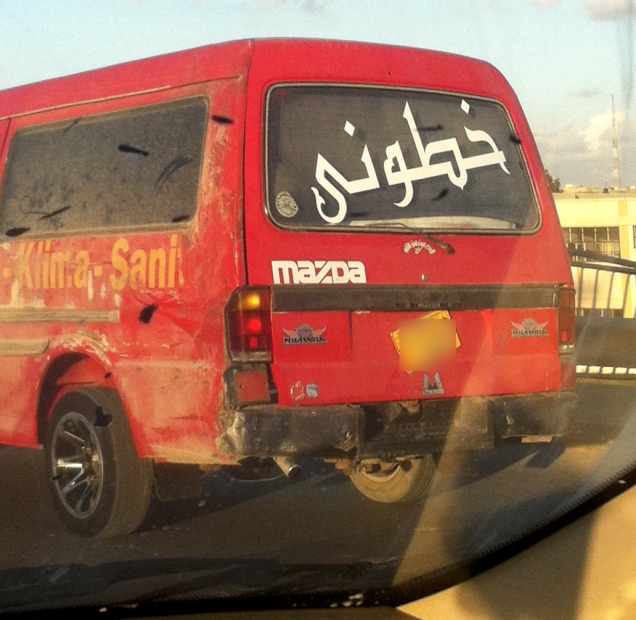
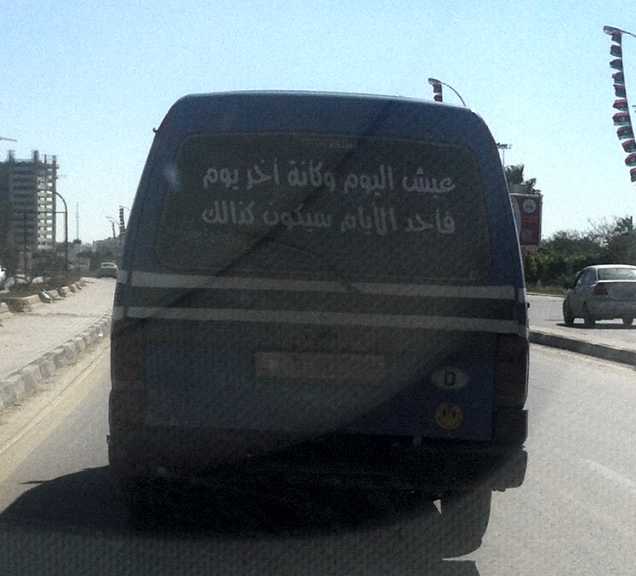
![The home for homeless [Benghazi]](https://wakeupbenghazi.files.wordpress.com/2015/10/img_2702.jpg?w=636&h=530)

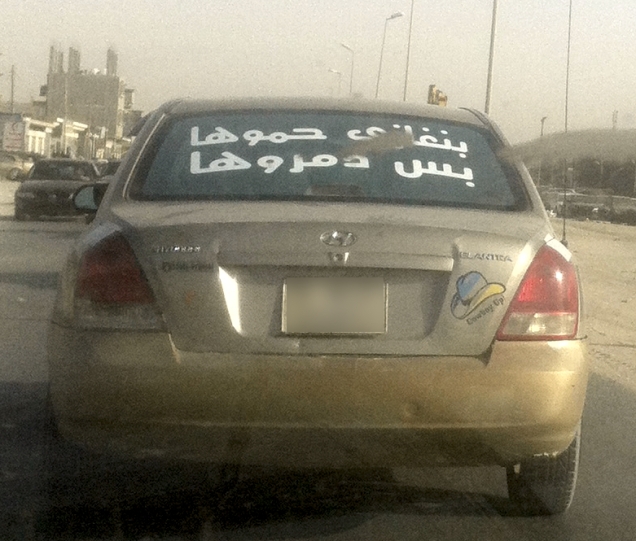
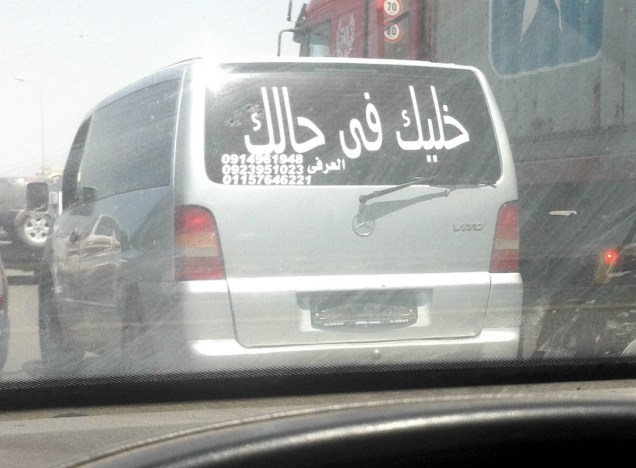
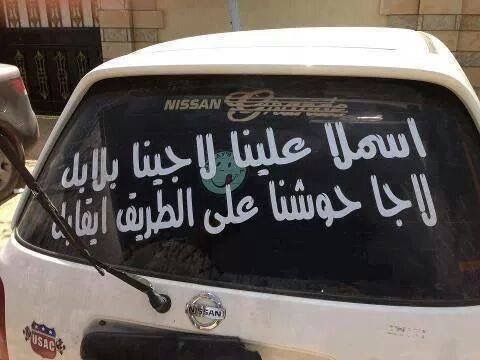
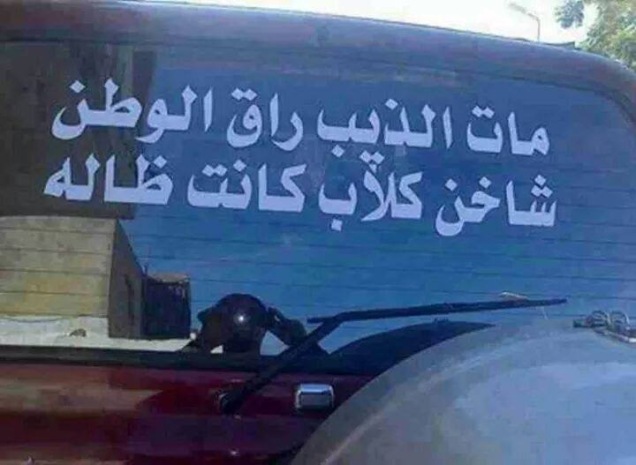
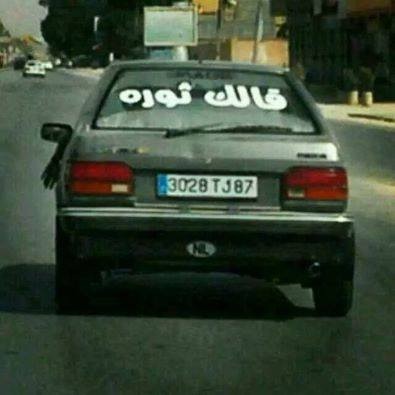
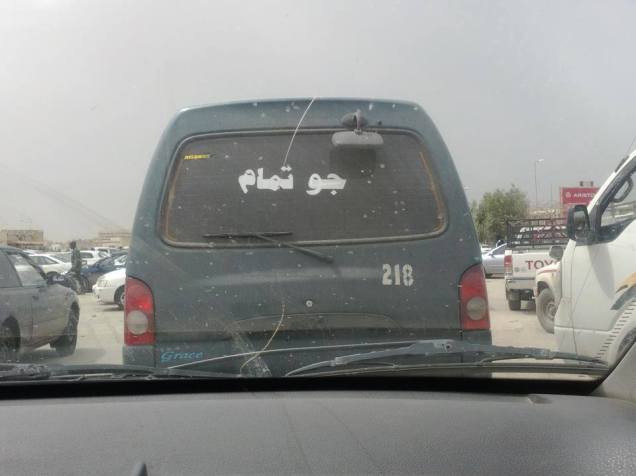
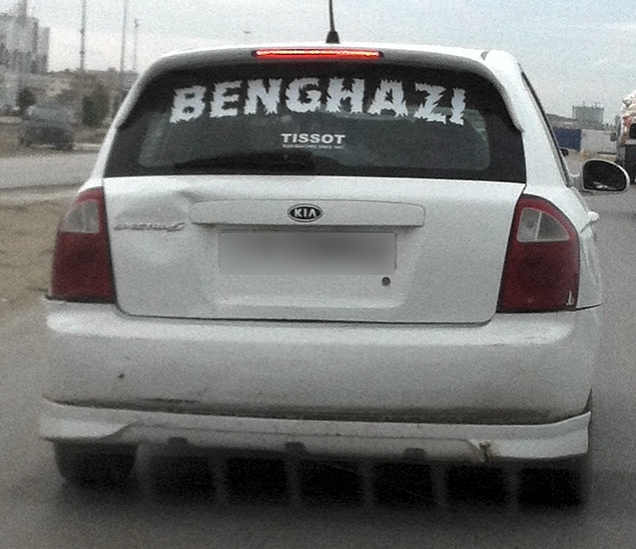
![Jegmina [no meaning]](https://wakeupbenghazi.files.wordpress.com/2015/10/img_2858.jpg?w=636&h=475)
